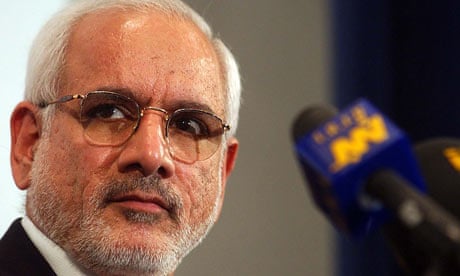The man in charge of Iran's nuclear programme has resigned amid signs that his departure is linked to political turmoil following last month's presidential election.
The semi-official ISNA news agency reported that President Mahmoud Ahmadinejad had accepted the resignation of Gholamreza Aghazadeh, the veteran head of the Atomic Energy Organisation of Iran (AEOI) and the country's vice-president for atomic energy.
No details were given of why the man described as the father of Iran's nuclear programme had stepped down, but there were suggestions it may have been for political reasons.
Aghazadeh has worked closely in the past with Mir Hossein Mousavi, who claims that he and not Ahmadinejad won the 12 June presidential election.
Iran insists its nuclear programme is for civilian power generation. But the US, Europe and Israel all fear it is aimed at producing atomic bombs.
Aghazadeh's position has been likened to that of AQ Khan, the architect of Pakistan's nuclear programme.
"Aghazadeh's resignation is a big deal," said Mark Fitzpatrick, a proliferation expert at the International Institute of Strategic Studies in London. "The signs are that it had something to do with the post-election turmoil and that he was aligned with Mousavi's camp. He brought a strong management discipline to the Iranian programme. Under his predecessor the [uranium] enrichment programme had been floundering. Progress had been stop and go.
"Everything in Iran is in flux right now, but I don't expect the nuclear programme will change direction."
In the 80s Aghazadeh worked as a deputy to Mousavi, first in the foreign ministry and then the prime minister's office.
This year Aghazadeh announced advances in manufacturing centrifuges, a key component of the enrichment programme. According to the UN nuclear watchdog, the International Atomic Energy Agency (IAEA), Iran has nearly 5,000 centrifuges currently enriching uranium and 2,000 others ready to start.
Aghazadeh is not known to have been involved in Iran's negotiations with the west over its nuclear programme, on which key decisions are taken by the supreme leader, Ayatollah Ali Khamenei.
Aghazadeh, 62, studied in the US before the 1979 revolution, later serving under Mousavi. He was minister of petroleum from 1985 to 1997, when he moved to the AEOI during the presidency of the reformist Mohammad Khatami – who openly backs Mousavi.
Ephraim Asculai, a nuclear expert at Israel's Institute for National Security Studies, said: "Aghazadeh has been successful in his work at a technical level."
